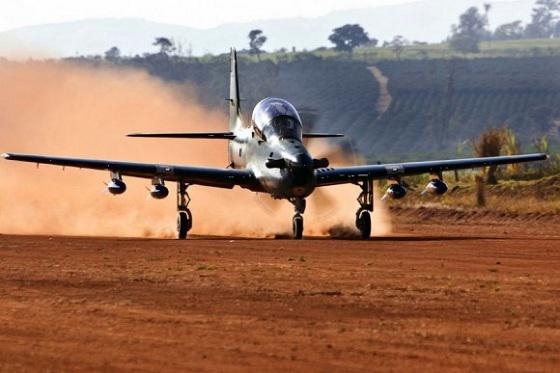Nigér, Mali and Burkina Faso have dispatched warplanes to Niamey, Niger in a show of solidarity against possible military intervention by the Economic Community of West African States (ECOWAS).
A TV news report aired on Niger’s state television highlighted joint efforts by Mali and Burkina Faso in support of Niger and the deployment of warplanes within Niger’s borders on Friday.
“Mali and Burkina Faso turned their commitments into concrete action by deploying warplanes to respond to any attack on Niger,” it said, noting the planes were Super Tucano fighter jets.
During a meeting on Friday of the ECOWAS chief of staff in Ghana, the date of the impending military intervention in Niger was not disclosed but the bloc declared that its military forces were ready to intervene as soon as orders were given.
Burkina Faso and Mali, both under military leadership, previously released a statement of support for Niger against the planned ECOWAS military operation to alter the course of the coup in Niger. It warned that any intervention would be seen as a declaration of war against Burkina Faso and Mali
Mali deployed a pair of EMB-314 Super Tucano, a Bayraktar TB2, and an Mi-35M (Hind-E) attack helicopter. Mali ordered six EMB-314 Super Tucano in 2018.
In 2021, Russia delivered an Mi-35M attack helicopter to Mali bringing the total number of the type in Mali to eleven. In 2016 Rosoboronexport signed a contract with Mali for four Mi-35M helicopters, with two delivered in September 2017, a third was delivered in 2018. Mali previously acquired at least seven Mi-24D helicopters second-hand from Bulgaria between 2007 to 2012.
Burkina Faso deployed a single EMB-314 Super Tucano, and a single Bayraktar TB2. Five Bayraktar TB2 drones were delivered to the military of Burkina Faso between April and May 2022.
Nigér also deployed a pair of Turkish-built Hükus-C light attack aircraft. Nigér is the first foreign customer of the Hurkus trainer aircraft, produced by Turkish Aerospace Industries.
The Hurkus-C is an armed variant that can be used for close-air support missions. It is fitted with a forward-looking infrared sensor and has a maximum weapons load of 3,300 pounds. It’s able to take off and land on unprepared runways. The main advantage of the Hurkus-C is that it reduces the cost of air power, particularly in low-intensity conflict theaters where anti-air warfare threats are negligible.
Last two year, Nigér ordered 12 Turkish-built Hurkus trainer-combat aircraft, as part of a large arms transfer deal.
Russia has warned that military intervention in Niger by the Economic Community of West African States (Ecowas) would lead to a “protracted confrontation” and destabilize the wider Sahel region.
The Russian foreign ministry said that such an intervention would be a “grave mistake” and would only serve to prolong the crisis in Niger.
Also, the United States has also threatened the Nigér junta that it may be pushed to intervene militarily if the country’s military rulers do not return to constitutional order.
It is expected that additional weapons will be introduced to the theatre to protect the Nigérien junta. Nevertheless, the deployed airpower are still no match for the combined ECOWAS aerospace fleet which outclassed them by a far margin. However, they still posess capabilities that may threaten the mission success for ECOWAS forces.





